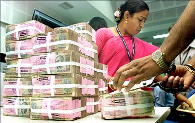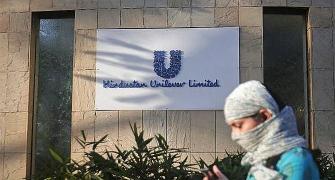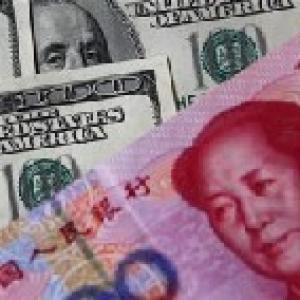 The Chinese leadership is working hard at making the yuan the preferred choice across world markets.
The Chinese leadership is working hard at making the yuan the preferred choice across world markets.One corollary of China's growing importance as a global economic and financial power is the purposeful way in which it is encouraging the use of the Chinese currency in global markets. As seems to be its wont, once a strategic decision is taken, it is pursued relentlessly and rapidly, if only in a step-by-step fashion.
A few years ago, a pilot programme was launched permitting trade transactions by companies in five cities to neighbouring countries to be invoiced in the yuan. In July 2009, the pilot programme was extended to all importers and exporters in 20 provinces and to all trading partners.
Reports suggest that the authorities are targeting for 50 per cent of China's trade to be invoiced in the domestic currency over the next five years.
Given that the currency has only one way to go, namely up, Chinese exporters have an obvious incentive to quote prices in the yuan rather than the dollar. It may be recalled that many of the power plants for which orders have been placed with Chinese suppliers by Indian companies have been contracted in the Chinese currency.
And, it seems the importers were encouraged to agree to yuan pricing by offering them a discount over the dollar price.
In the context of the restrictions on non-residents entering the domestic foreign exchange market, hedging for such transactions seems to be getting done in the off-shore, non-deliverable forward market.
In order to facilitate invoicing and settlements in the yuan, the Chinese central bank has also entered into bilateral swap facilities with east-Asian central banks.
Overall, it seems, in internationalising its currency, China is closely following the Japanese model.
In the 1950s, most of India's trade with Japan, both imports and exports, was denominated in the US dollar. In the 1960s, Japanese exporters, particularly of capital goods, started invoicing their exports to India in yen.
By then, Japan had started accumulating current account surpluses, with every prospect of currency appreciation -- this is exactly the situation in China today.
One major advantage China has in internationalising the yuan is the existence of a leading global financial centre, namely Hong Kong, next door. Although, technically, it is a Special Administrative Region of China, Hong Kong has its own currency.
This allows the Chinese authorities great flexibility in creating an off-shore market in the yuan, even while keeping a tight control on the exchange rate in the domestic market. The issue of yuan-denominated bonds in Hong Kong was first permitted in June 2007, but these issues were restricted to financial institutions.
The Asian Development Bank and the International Finance Corporation have made yuan-denominated bond issues both in the domestic and Hong Kong markets.
Recently, the Chinese government made a yuan bond issue in the SAR. The market has also been extended to commercial, non-financial entities. In Hong Kong, the issue of yuan-denominated insurance policies and mutual funds has been encouraged.
The first yuan-denominated equity issue of a Chinese company was recently floated in Hong Kong. There is a rapidly growing market in yuan-denominated deposits with the Hong Kong banks - the latest estimate of such deposits is almost ¥ 300 billion.
Apart from Hong Kong, the yuan has been freely circulating in some neighbouring countries like Mongolia, Korea, Vietnam, Laos and Myanmar. More recently, an agreement has been reached with Taiwan to make available yuan currency notes to Taiwanese residents and travellers to the mainland.
Along with an off-shore capital market, Hong Kong also has a rapidly growing foreign exchange market in the yuan. Recently, the process of squaring net yuan purchases in the Hong Kong exchange market has been liberalised considerably.
Overall, the strategic direction and goal are very clear. Reports suggest that most Hong Kong residents would prefer the domestic currency to be de-linked from the US dollar and pegged to the yuan.
For some time, the Chinese authorities have been making noises that it is high time the US dollar's role as the principal reserve currency was taken over by a basket of currencies, like special drawing rights.
They are likely to find a sympathetic ear in the French president who has recently taken over as the head of the G20 for the current year. (The French have long believed that the dollar's status as the principal reserve currency gives it an exorbitant privilege and huge seigniorage gains.) But this apart, it is high time the yuan became a part of the SDR basket.
Tailpiece
As for the Indian rupee, is it not yet time we allowed it to be used in the duty-free shops at airports? - after all, the currency is convertible for all current account transactions.
Again, press reports suggest that when Iran recently offered to accept payment for oil in rupees, we were not agreeable. Surely, this is a better, if only temporary, solution rather than a stalemate?
But, this apart, the latest Bank of International Settlements data, also quoted in the Reserve Bank of India's Financial Stability Report, suggest the huge trading volumes in the Indian rupee in the NDF market abroad.
email: avrajwade@gmail.com









